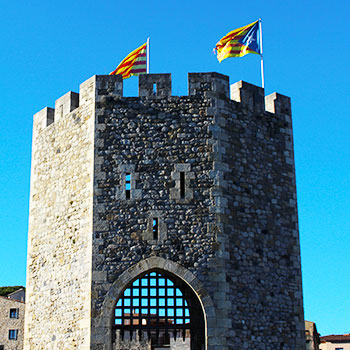The EU Trade Policy in a Time of Changes
International Business Program
Barcelona, Spain
Dates: 8/31/23 - 12/16/23

The EU Trade Policy in a Time of Changes
OVERVIEW
CEA CAPA Partner Institution: Pompeu Fabra University
Location: Barcelona, Spain
Primary Subject Area: Business
Instruction in: English
Transcript Source: Partner Institution
Course Details: Level 300
Recommended Semester Credits: 2
Contact Hours: 32
DESCRIPTION
The EU's Common Trade Policy is an inseparable element of the process of European integration in both economic and political terms. Many aspects explain this centrality: it is one of the EU's few exclusive competences; the success of the Single Market and its potential both to attract trade partners and to generate surpluses and income that can be converted into FDI in third countries; and, of course, the absence of a common foreign policy. These are just some of the factors. The EU has used its CTP as an policy instrument to establish itself as an actor on the international stage and be recognised as such. Proof of this are numerous: the EU has been a full member of the World Trade Organisation since 1 January 1995, for example. Moreover, the EU has been combining this multilateral approach to trade with a more and more dense of bilateral trade agreements (Korea, Chile, Pakistan, the Philippines, to mention just a few).
This subject seeks to teach second-cycle students about all these debates. That is why the course has been structured into five blocks which, though autonomous, are intimately related.
Block 1 will go over the patterns of continuity and change in global economic flows and the international economy, while Block 2 will present the EU as just another actor in this
economic, political and institutional landscape which, in spite of seeking to express itself with a single voice, also suffers from certain functional limitations due to its own complex nature. This block will also seek to open the black box of the decision-making process and present the interinstitutional tensions and challenges. Block 3 will place attention on the emergence of new non-state actors, such as Business Interest Associations and civil society organisations that have been capable of finding space in the CTP ecosystem. Moreover, we should emphasise that these new-generation agreements have been the centre of attention of public opinion in a way never seen before. The mobilisations against the TTIP, for example, managed to bring more than 100,000 people together in Berlin. It should come as no surprise that at a time when disinformation campaigns are proliferating, the EU has decided to carry out an audacious communication policy concerning the CTP. This aspect will be analysed in Block 4. Connected with the foregoing, Block 5 will present some specific case-studies.
This subject seeks to teach second-cycle students about all these debates. That is why the course has been structured into five blocks which, though autonomous, are intimately related.
Block 1 will go over the patterns of continuity and change in global economic flows and the international economy, while Block 2 will present the EU as just another actor in this
economic, political and institutional landscape which, in spite of seeking to express itself with a single voice, also suffers from certain functional limitations due to its own complex nature. This block will also seek to open the black box of the decision-making process and present the interinstitutional tensions and challenges. Block 3 will place attention on the emergence of new non-state actors, such as Business Interest Associations and civil society organisations that have been capable of finding space in the CTP ecosystem. Moreover, we should emphasise that these new-generation agreements have been the centre of attention of public opinion in a way never seen before. The mobilisations against the TTIP, for example, managed to bring more than 100,000 people together in Berlin. It should come as no surprise that at a time when disinformation campaigns are proliferating, the EU has decided to carry out an audacious communication policy concerning the CTP. This aspect will be analysed in Block 4. Connected with the foregoing, Block 5 will present some specific case-studies.







